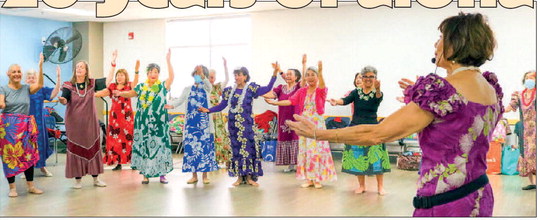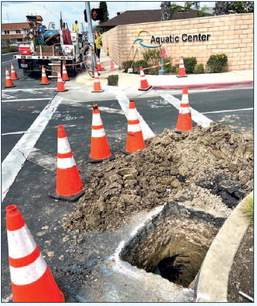Member Column
by Jim Greer
LW contributor
In the 2014 film, “The Imitation Game,” Benedict Cumberbatch portrays Alan Turing, the English cryptanalyst whose codebreaking solutions enabled the Allies to crack Germany’s Enigma codes and eventually win World War II. Turing was regarded as a genius by teachers at Cambridge and colleagues at the Government Code and Cypher School (GC& CS). His extraordinary intelligence and devotion to his research were considered anything but “normal.”
In a poignant scene, Alan is reassured of the value of his contributions to society by a former co-worker and one-time fiancé, Joan Clark. Now married with children, Joan was living a life that Alan referred to as “normal,” a life that he had wanted. She passionately explains to Alan, “Do you know, this morning I was on a train that went through a city that wouldn’t exist if it wasn’t for you. I bought a ticket from a man who would likely be dead if it wasn’t for you. I read up on my work, a whole field of scientific inquiry that only exists because of you. Now, do you wish you could have been normal? I promise I do not. The world is an infinitely better place precisely because you weren’t.”
We must admit that the definition of normal changes with the times. For instance, back in 1970, the median income was $9,870 per year. Today, the median income is $71,228. I’d be much happier to live on today’s “normal” income. In my pocket, I carry an iPhone that weighs 6.84 ounces. While it was expensive, it was much cheaper than the first cell phone, the 1983 Motorola DynaTac that cost $3,995 and weighed 2-1/2 pounds.
These past several months have prompted many of us to ask, “Is this the new normal?” In many ways, I hope it is. I’ve been so impressed with the good that is being done in our community. Food deliveries, face mask sewing and donations; increased caring for, and tracking of the homebound with phone calls, food delivery and prayers on their behalf.
This new normal has forced society to cast aside aspects of our lives that may not have been the best for us. For instance, aren’t we all safer because people are washing their hands regularly? Isn’t it great to have stores and restaurants taking extra precautions to ensure that we are all safe?
Granted, keeping a mask with you in case you can’t practice social distancing may be inconvenient. But we put them on as a courtesy because we care about others. And caring about others is the new normal.
One of the least “normal” people of his era, the painter Vincent van Gogh, believed that “normality is a paved road. It’s comfortable to walk, but no flowers grow there.”
So, if you are unsure about the new normal, get off the paved road and observe the flowers. Enjoy the blooms of kindness, florets of consideration and blossoms of courtesy planted there by your caring neighbors.



